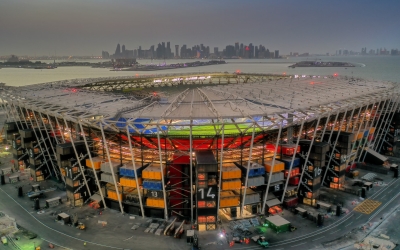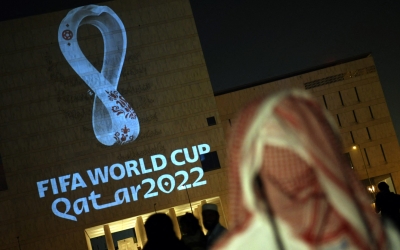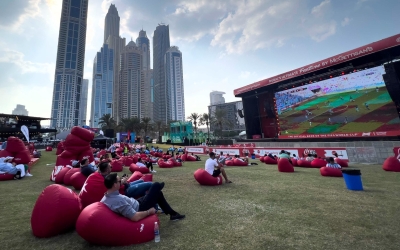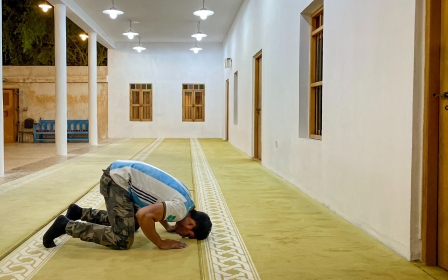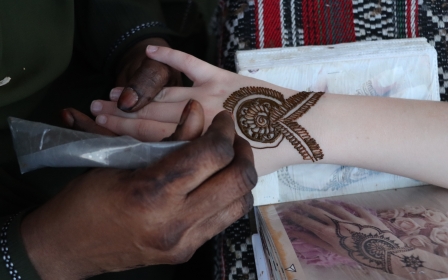World Cup 2022: Will Qatar's record spending pay off?
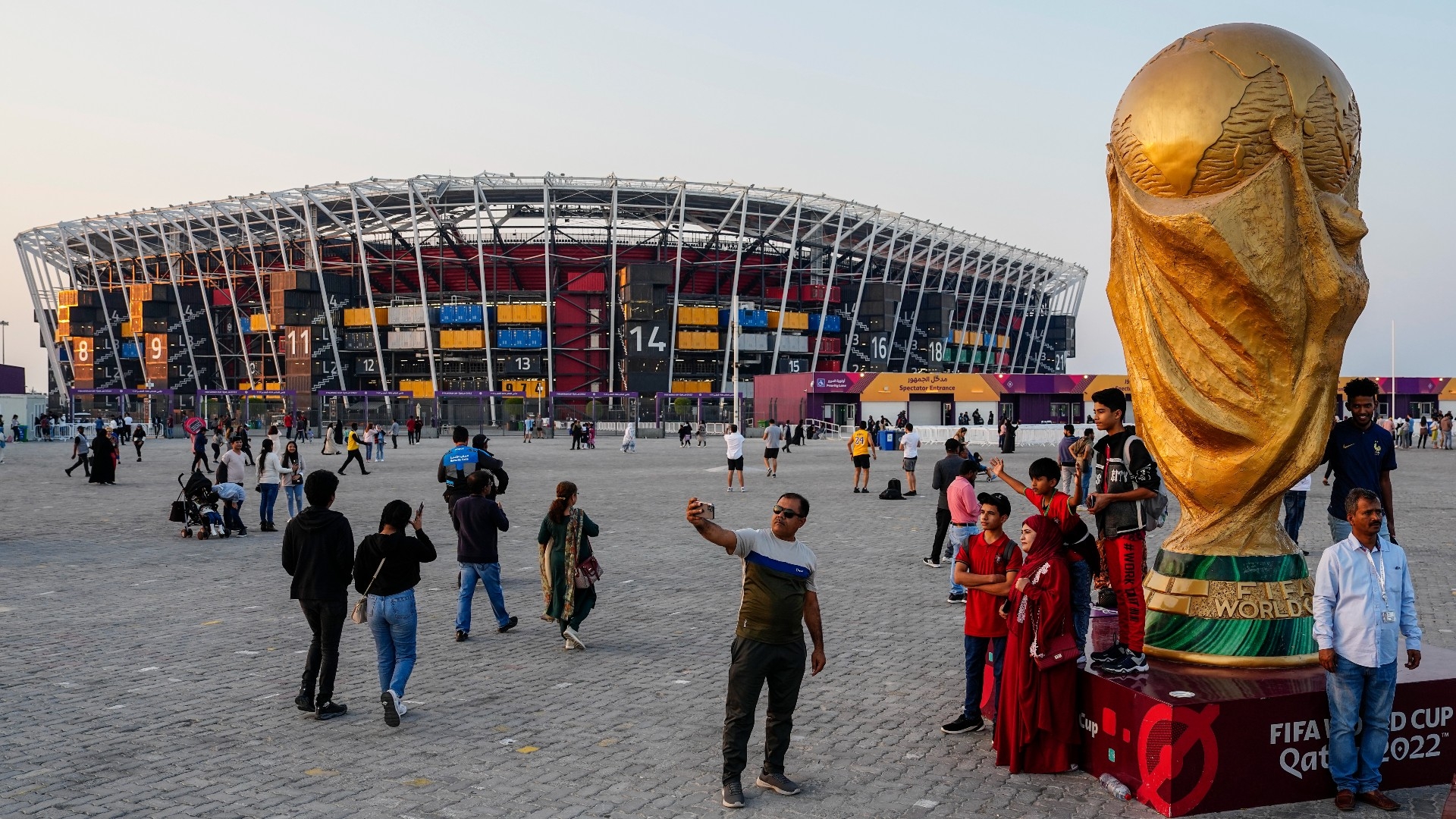
From the outset, the Qatar World Cup involved a level of spending never seen before.
The gas-rich nation reportedly forked out $220bn since it won the rights to host the men's World Cup more than 12 years ago.
Much of that went into the construction of a new metro system, roads, a new airport, neighbourhoods and even an entirely new city.
'Fifa keeps all of the television money, all the ticketing money and just about all of the sponsorship money'
- Andrew Zimbalist, Smith College
While the month-long tournament concluded on Sunday with one of the most gripping finals in the tournament's history, the lavish spending has raised questions over whether it was all really worth it.
Between 1964 and 2018, 31 out of 36 big events, such as World Cups or summer and winter Olympics, racked up huge losses, according to researchers at the University of Lausanne.
New MEE newsletter: Jerusalem Dispatch
Sign up to get the latest insights and analysis on Israel-Palestine, alongside Turkey Unpacked and other MEE newsletters
Andrew Zimbalist, a professor of economics at Smith College and the author of Circus Maximus: The Economic Gamble Behind Hosting the Olympics and the World Cup, said that while it was unclear exactly how much Qatar spent, it was "by a long way a record amount of money that's ever been spent on a sports mega event".
He noted that the previous record was the $5obn the Russian government spent on the 2014 Sochi Winter Olympics, where an estimated one-third disappeared as a result of corruption.
Zimbalist said that any serious calculation of the true cost of the Qatar World Cup could not focus only on the seven stadiums that were constructed - which authorities say cost around $6.5bn - but also the extensive infrastructure developments across areas such as transportation, telecommunications and security, as well as hospitality and hotels.
"Qatar has had to change its infrastructure in order to accommodate the needs of the World Cup," he said.
Dismantling stadiums
While Fifa covers virtually all of the costs of operating the tournament – which it forecasts to be around $1.7bn – Qatar will incur further expenditure after the tournament ends with much of it related to dismantling stadiums.
Qatari authorities have outlined a plan to dismantle and donate parts of the venues to neighbouring countries to improve their own sports arenas, with 170,000 seats in total to be removed and sent elsewhere.
Stadium 974 - the first temporary ground to be used at a World Cup, made from 974 recycled shipping containers - is to be completely dismantled and distributed to other countries.
Others have detachable upper tiers, with the Al Bayt Stadium, for instance, to be reduced from a capacity of 60,000 to 32,000.
Commenting on the significant additional work this will require, Zimbalist said: "All that costs a lot more money. And there will be other stadia that are practically unused, that are taking up valuable real estate and that will have to be maintained, so the costs will start going up even more."
Six of the World Cup venues will remain in Qatar after the tournament, with capacities ranging from 20,000 to 45,000.
The country's authorities have said that the 80,000-capacity Lusail Stadium, which hosted the World Cup final on Sunday and was the biggest venue to be used during the tournament, will be turned into a community space featuring schools, cafes and health clinics.
Airport expansion
Zimbalist acknowledged that beyond the stadiums, infrastructure projects such as the expansion of Doha's Hamad International Airport, which opened in 2014, can prove to be a worthwhile investment beyond the World Cup.
Qatar Airways Group said in September that the airport's expansion project would be inaugurated prior to the World Cup, with annual passenger handling capacity expected to increase to 58 million.
It also revealed that the final phase expansion, due to begin in January 2023, is expected to be completed by the middle of 2025 and will increase capacity to more than 70 million passengers a year.
"So some of the infrastructural improvements are connected to the games, but they also last for a long time," said Zimbalist.
Nevertheless, when it comes to the question of what Qatar can realistically make back from all the investment that has gone into the hosting of the World Cup, he believes it is minimal.
He points out that almost all of the revenue generated by a World Cup goes to Fifa rather than the country where it is played.
"Fifa keeps all of the television money, all the ticketing money and just about all of the sponsorship money," he said.
Fifa has forecast revenues of $4.7bn, the vast majority of which will come from the tournament in Qatar. Given the operating costs it has forecast of $1.7bn, it means that "while FIFA walks away with $3bn of net revenue from the World Cup, the host country loses money".
Prospects for FDI
But what about any longer-term potential economic benefit? IPA Qatar, the country's investment promotion agency, said in a report published in February that growth in the country's sports industry following the World Cup can help deliver greater foreign direct investment (FDI).
It noted that Qatar's Ministry of Commerce and Industry has identified 83 commercial and investment opportunities for the private sector through 2023 in areas such as "event management and promotion" and "sports commercialisation".
However, analysis from Investment Monitor of overall FDI in the hosts of the last three World Cups - Russia, Brazil and South Africa - found that it had declined in the years after the tournament in all three countries.
'I think there are probably lots of people who had literally never heard of Qatar until they won the right to host the World Cup'
- John McManus, Inside Qatar
Taking 100 as an index for the World Cup hosting year, by 2020 that index had fallen to 80.47 in South Africa (which hosted the tournament in 2010), 60 in Brazil (2014) and 53.85 in Russia (2018).
"There's absolutely no evidence that hosting a mega event increases foreign direct investment," said Zimbalist.
He was also sceptical about suggestions that Qatar would receive a major boost to tourism. The Qatar Chamber has claimed the country will receive 6.24 million tourists by 2028, with tourism spending set to reach $28bn by that point, growing by 9.1 percent on average per year.
But Zimbalist pointed out that there have been few examples of a sustained tourism boom in previous host countries.
Little awareness
John McManus, a social anthropologist and author of the book Inside Qatar, agrees that it is unlikely Qatar would find significant economic benefit from having hosted the World Cup.
However, he points out that it may have more to gain than other recent hosts given how little awareness there was of the country compared with the likes of Russia, Brazil or South Africa prior to it being awarded the tournament.
"I think there are probably lots of people who had literally never heard of Qatar until they won the right to host the World Cup," he said.
"It's a place which a lot of people around the world, I'm not sure they could confidently tell you where it is, or anything that it does. So in that regard, in terms of generating exposure, literally putting oneself on the map, I think it certainly does that."
McManus also stresses that the way Qatar is viewed varies across the world. "The image of Qatar in the West should not be taken as the image of Qatar globally."
He said that the heavy focus on human rights issues in the country that has dominated the narrative in the West during the run-up to the World Cup has not necessarily been mirrored in other parts of the world.
"I'm not sure these issues have been prominently covered in the media elsewhere, or aren't necessarily as important."
He revealed that a recent conversation he had with a Latin American diplomat, for instance, about Qatar appeared to indicate that while countries in that region are aware to a certain extent of the human rights issues, "it's even more of a blank slate there".
"So in some ways, perhaps Qatar has more to gain with these other regions of the world," he said.
"And of course, in the Middle East, where it is quite well known, people's reactions to it hosting the tournament are different again. So talking about the legacy or the impact of the World Cup, I think it's important to ask for whom - for which regions of the world? It's not helpful to think of it as a singular global response."
Workers' welfare
Nevertheless, McManus acknowledges that an important part of measuring any lasting impact of the World Cup for Qatar is the extent to which issues such as workers' welfare continue to be addressed by the Qatari government now that the tournament is over.
"I think it's a valid worry that the progress which we've seen will not be sustained or will not kick on, and the arc will not continue on the same trajectory," he said.
Since 2017, the Qatar government has introduced a number of labour reforms covering working conditions and a minimum wage, and has abolished the kafala system.
However, in a report published in 2021, Human Rights Watch said that migrant workers were still suffering "punitive and illegal wage deductions, and… months of unpaid wages for long hours of gruelling work".
And Amnesty International said companies were still putting pressure on labourers to stop them switching employers, arguing that this effectively means forced labour still exists in Qatar.
Yasmine Ahmed, UK director of Human Rights Watch, said the group would continue to put pressure on the Qatari government to introduce wider reforms and strengthen their implementation now that the World Cup is over.
"There are still many migrant workers who are not at this time getting their pay. And one can only imagine what's going to happen when the spotlight of the World Cup shifts elsewhere," she said.
"So we're pushing very hard for Qatar to make those commitments, and to ensure that they're embedded, that they're resourced, that there's political will and it's practically resourced, so that these schemes that they've set up can work, and work for the most impoverished and marginalised and lowest paid.
"For a labour force that's 90 percent migrant, hopefully there will now be some progress and something to continue to build on."
Middle East Eye delivers independent and unrivalled coverage and analysis of the Middle East, North Africa and beyond. To learn more about republishing this content and the associated fees, please fill out this form. More about MEE can be found here.


